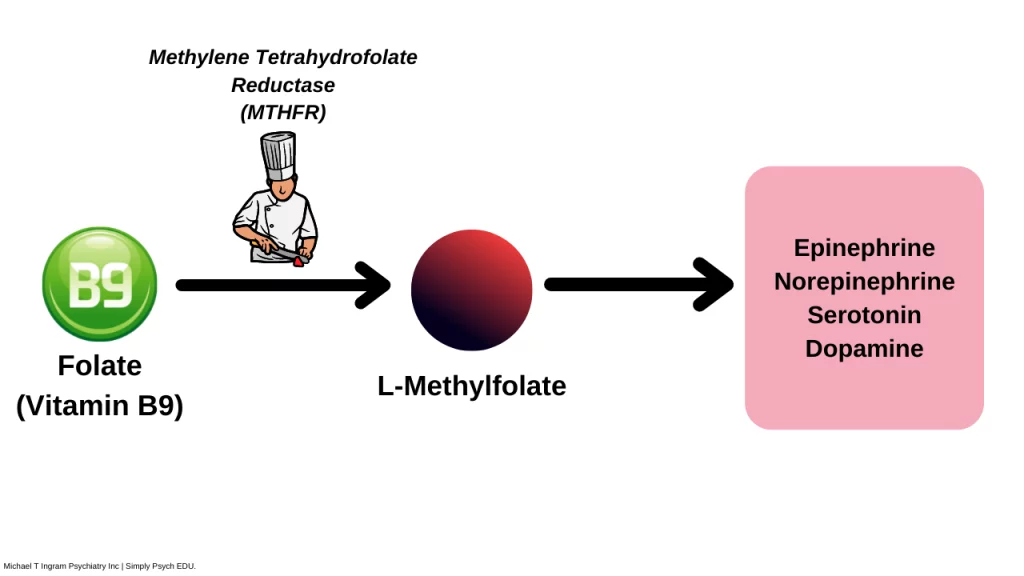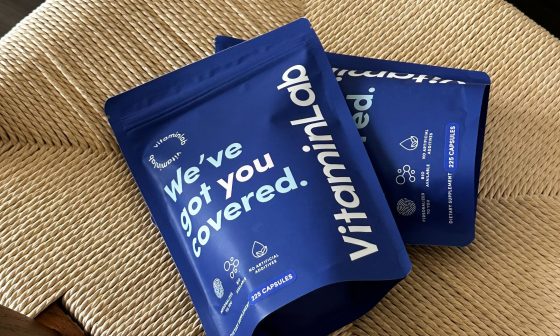Folic acid deficiency is one of the most common vitamin deficiencies in the world. It is also one of the most commonly misunderstood deficiencies. Many practitioners recommend folic acid supplements for their patients and don’t see any improvement in their symptoms, while other patients can feel like a whole new person. Why is there such a dramatic difference in results? Let’s dive in and explore:
Folic acid, folate, vitamin B9, L-methylfolate, MTHFR… what is the difference between all of these forms? As practitioners, which should we be recommending to our patients? Are they interchangeable? Can the Real Slim Shady please stand up?
The Breakdown
Folate is an essential vitamin that is sometimes referred to as the natural form of vitamin B9. Folate deficiency can be resolved through supplementation, but Folate can also be found naturally in some food.
Folic acid is the supplemental or synthetic form of folate. It is known as the “pregnancy supplement” as it is crucial for DNA synthesis and healthy cellular activity, preventing neural tube defects and supporting methylation. Some nations have fortified their wheat and grain products with folic acid in an attempt to prevent deficiency.
L- methylfolate is the biologically active form of vitamin B9. Folic acid and folate are metabolized and converted into L-methylfolate, which is the form that our bodies can actually use to support methylation. When reading supplement labels, look for L- and 6(s) L-methylfolate which indicates biologically active. D- and 6(R) L-methylfolate indicates non-biologically active.
MTHFR (methylenetetrahydrofolate reductase) looks like an abbreviation for a curse word at first glance but it is actually the gene that initiates your ability to methylate. MTHFR converts folic acid and folate to their active form, L-methylfolate, which is the biochemical needed to kick off the methylation cycle. In some ethnicities, the chance to have at least one MTHFR variant is as high as 50%. This can lead to low levels of folate and high levels of homocysteine in the blood.
Why Is This Important?
This supplement is extremely important for physical and mental wellbeing. Unfortunately, folate deficiency is quite prevalent, affecting 30-40% of women. Low folate levels can lead to certain types of anemia, resulting in low energy levels, dizziness, fatigue, etc. It is important for the prevention of neural tube defects when pregnant. Folate levels are affected by diet, pregnancy, alcohol intake, liver disease, stress, malabsorption, and abnormal metabolism.
Any folic acid or folate that is ingested, either by food or supplement, needs to be metabolized into L-methylfolate in order for our bodies to properly use it. If someone has an MTHFR mutation, they will not be able to efficiently use the folate.

Imagine having all the ingredients to make a nice bowl of pasta, but not having the pot to cook it in. That’s what it’s like when we have mutations with our MTHFR. We can take folic acid and folate all we want, but without our MTHFR gene working properly, they are rendered useless. Taking L-methylfolate it equivalent to getting the meal delivered to you or going out to a restaurant. You get to skip the cooking (the conversion process) and just enjoy the meal!
Benefits Of Supplementing with L-Methylfolate
Can one supplement really make such a difference? Dr. Ben Lynch, author of the book “Dirty Genes” and the doctors he works with have seen hundreds of success stories. Supplementing with L-methylfolate can improve mood, energy levels, and is critical during pregnancy.
If folic acid or folate supplementation is not improving the symptoms of your patients, you may want to get their MTHFR gene tested. If a genetic mutation is present, supplementing directly with L-methylfolate instead of folic acid or folate is essential. It allows you to bypass the entire folic acid metabolism cycle, so even if you have a genetic mutation, you can still use the most biologically active form of B9.
Better together: vitamin B9 works synergistically with B2, B12, and magnesium. Inform your patients that they should be incorporating the foods listed below into their diet to support their folate levels.
Key Nutrients To Recommend To Your Patients
- Riboflavin/B2: liver, lamb, mushrooms, spinach, almonds, wild salmon, eggs
- Folate/B9: green vegetables, beans, peas, lentils, squash, citrus
- Cobalamin/B12: red meats, salmon, poultry, eggs
- Magnesium: dark leafy greens, seeds, fish, beans, avocado, whole grains
In addition, ask your patients to concentrate on stress relief. Advise them to interact with family and community, be outside in nature, avoid factory-farmed meat and toxic exposure.








